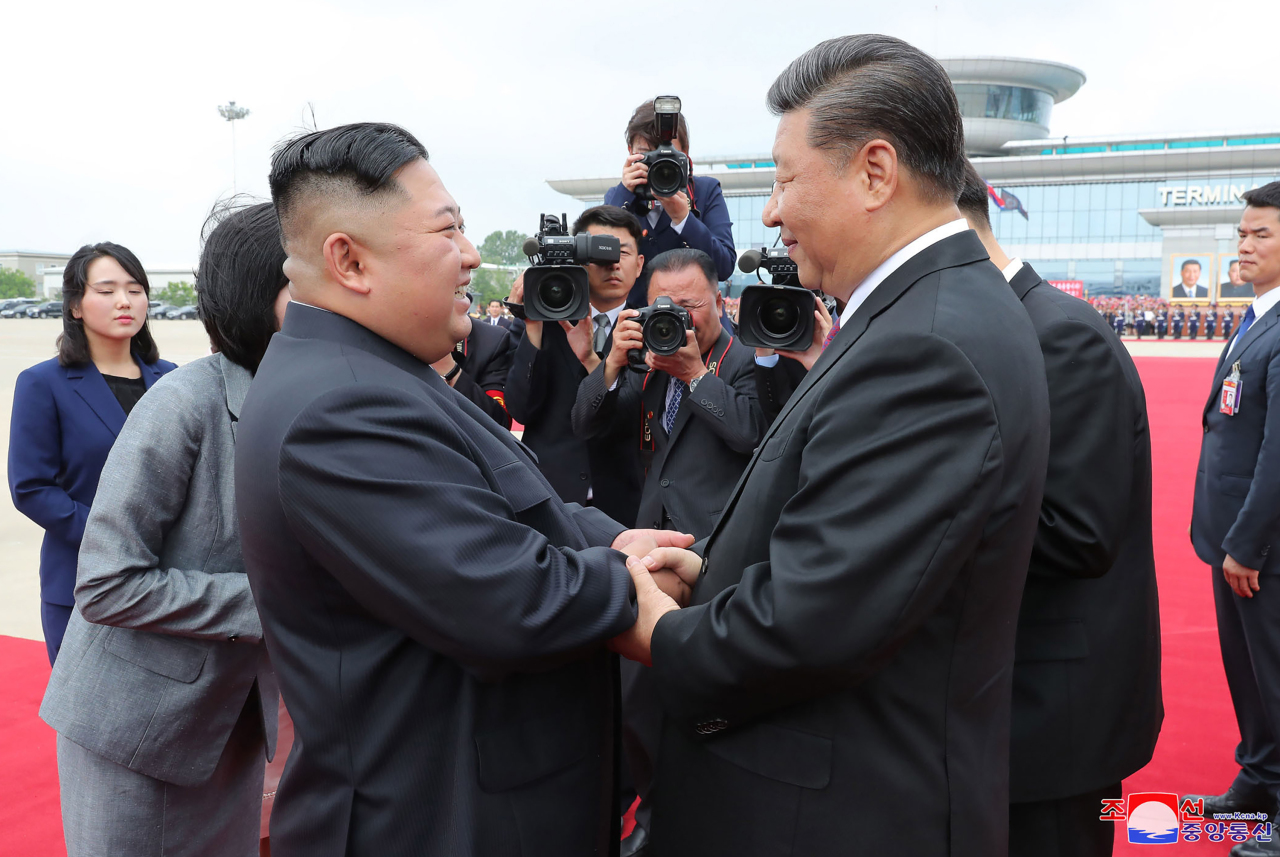Positive signals sent back and forth between the US and North Korea are feeding hopes for a swift resumption of nuclear negotiations that have been at a standstill since the last summit between the two countries ended without results in late February.
Within the past two weeks, US President Donald Trump and North Korean leader Kim Jong-un each disclosed that they had received letters from each other, with both expressing satisfaction and hinting that the letters might be a sign of positive developments in the nuclear talks.
On Sunday, US Secretary of State Mike Pompeo said Washington was ready to hold working-level discussions with Pyongyang on the denuclearization of the Korean Peninsula.
“We’re ready to go, we’re literally prepared to go at a moment’s notice if the North Koreans indicate that they’re prepared for those discussions,” he said.
He said he hopes the letter Trump sent Kim can pave the way for more talks, saying the response from the North suggests there is “a very good possibility” of meetings between the two sides.
His remarks came hours after the North’s state-run Korean Central News Agency reported that Kim would “seriously contemplate the interesting content” included in the letter from Trump. The letter is believed to be a reply to Kim’s earlier letter to Trump, which on June 11 the US president described as “beautiful and warm.”
 |
In this Friday, photo provided by the North Korean government, North Korean leader Kim Jong-un, (center left) and Chinese President Xi Jinping bid farewell at Pyongyang International Airport in Pyongyang, North Korea. (AP-Yonhap) |
Experts here speculate that Kim, who prefers a top-down approach to negotiations, may have suggested a third US-North Korea summit in Pyongyang or Panmunjom in his letter, and Trump, in response, may have said that working-level negotiations are needed in order to prevent another setback in the nuclear talks.
“The leaders’ willingness is quite strong to recover from the shock of the Hanoi summit and to move the denuclearization talks forward in earnest in the second half of this year. A mood will be created before and after the G-20 summit,” said Koh Yu-hwan, a professor of North Korean studies at Dongguk University.
US-North Korea talks stalled after a failed summit in February between Trump and Kim in Hanoi, Vietnam.
Creating an encouraging environment for North Korea to return to the negotiating table are diplomatic events planned for later this week here and in Japan that provide the North with a the chance to meet the US leader as well as nuclear negotiators, even on short notice.
Trump will pay a two-day state visit to South Korea with Secretary of State Pompeo from Saturday evening after attending the G-20 summit in Osaka, Japan, Friday and Saturday. US chief nuclear negotiator Stephen Biegun is expected to arrive here as soon as Wednesday.
Restarting negotiations with Pyongyang before the G-20 summit is beneficial for Washington, said Kim Hyun-wook, a professor at the Korea National Diplomatic Academy.
The US could harness it as a way to tout its influence over the North, especially to China, in order to gain leverage at the upcoming G-20 summit in Japan, where Trump and his Chinese counterpart Xi Jinping will discuss their ongoing trade war.
Trump is under pressure as Xi could have obtained concessions on denuclearization from the North Korean leader during his first official trip to Pyongyang last week.
“While talking with the US, China might be wishing to show off that it has produced certain outcomes on North Korean issues. For the US, hard evidence that it has the upper hand on Pyongyang would be working-level negotiations with the North before the G-20 summit takes place,” Kim said.
Park Won-gon, a professor of international politics at Handong Global University, said a working-level meeting is likely to come after the G-20 meeting, as the North would want to monitor possible changes in the political dynamics between the US and China before making any decision.
“What the North is paying attention to is how the relationship between the US and China will be determined at the G-20 summit,” he said.
If Washington and China reach a consensus on a path to solving the trade dispute, Pyongyang will bank on the resumption of nuclear talks with the US. On the other hand, if their trade tensions escalate, North Korea will play for more time as the possibility of China supporting the regime will likely increase, according to Park.
(
hnpark@heraldcorp.com)






![[Exclusive] Hyundai Mobis eyes closer ties with BYD](http://res.heraldm.com/phpwas/restmb_idxmake.php?idx=644&simg=/content/image/2024/11/25/20241125050044_0.jpg)
![[Herald Review] 'Gangnam B-Side' combines social realism with masterful suspense, performance](http://res.heraldm.com/phpwas/restmb_idxmake.php?idx=644&simg=/content/image/2024/11/25/20241125050072_0.jpg)
